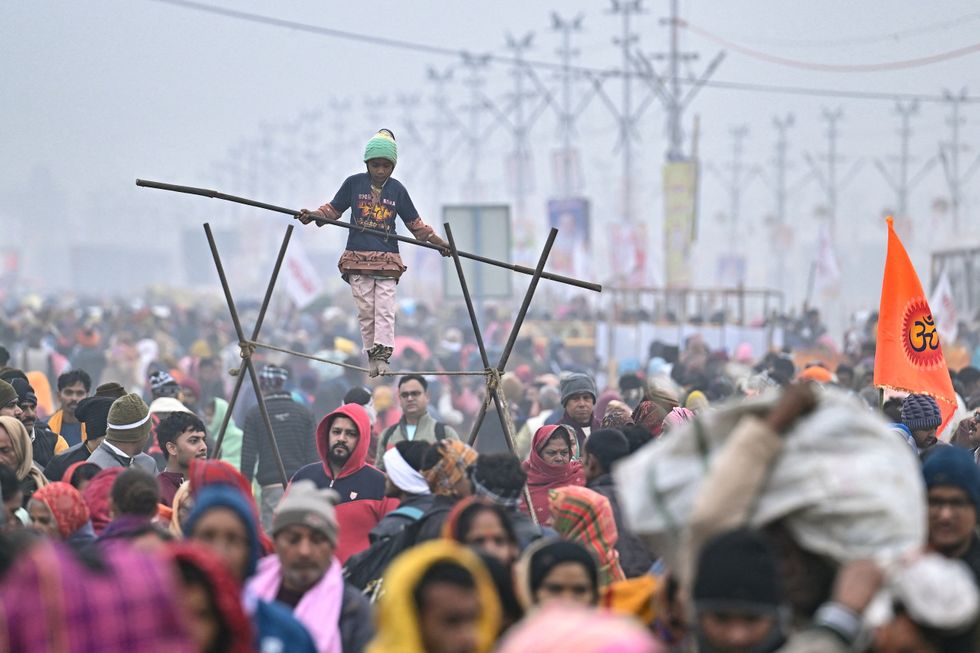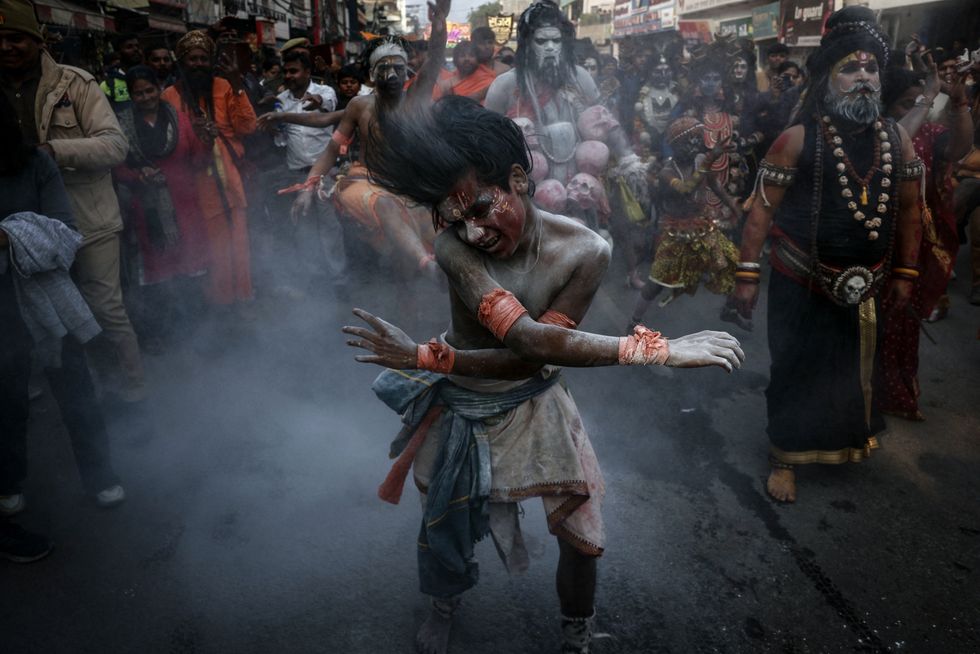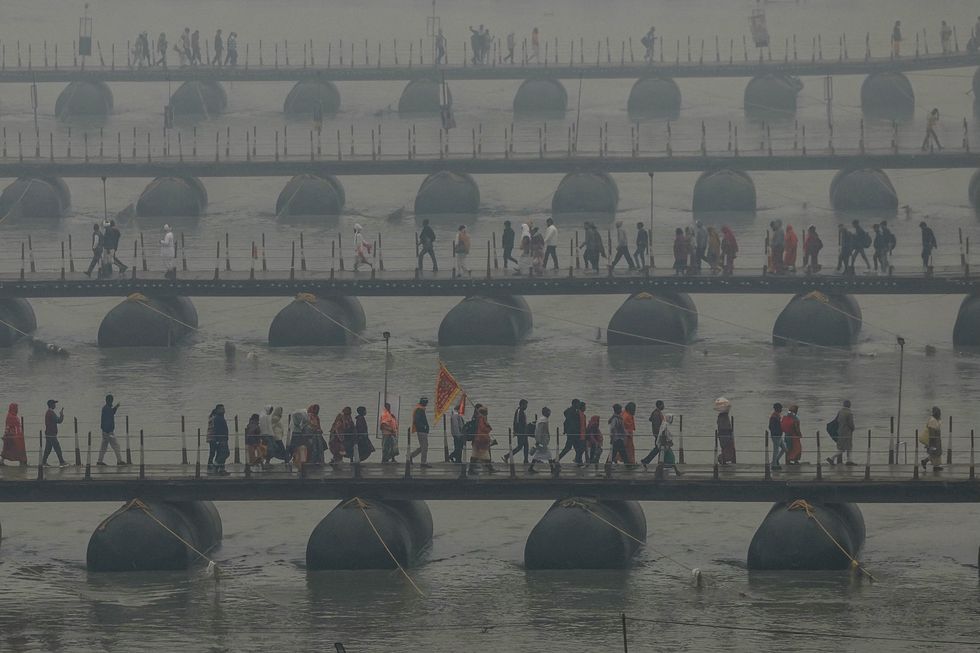By Dinesh Sharma
LAST weekend, Joseph Robinette Biden, Jr was declared the 46th president-elect of the United States.
The third time may have been the ‘luck of the Irish’ for Biden, whose ancestors hailed from County Louth. His great, great, great grandfather moved to America during the Irish famine almost two centuries ago. As a senator, elected at the age of 29 and dreaming of a “Camelot on Delaware”, he endured many tragedies, including losing his first wife and young daughter, a near-fatal brain aneurism, and dropping out twice during the primaries (1988 and 2008) before finally achieving the milestone.
Biden served six terms in the Senate and eight years as vice-president for Barack Obama. Yet, after the passing of his son Beau Biden to brain cancer (2015); and later, the “Unite the Right” rally in Charlottesville (2017) organised by white nationalist and neo-Nazi groups in response to removal of Confederate monuments, Biden may have been summoned by personal tragedy and the call of history.
“We are living through a battle for the soul of the nation,” the former vice-president wrote in The Atlantic. As he waited in January 2009 at the Wilmington station for a train carrying Barack Obama, the first African-American president of the US, Biden’s “mind’s eye drifted back to 1968. I could see the flames burning Wilmington, the violence erupting on the news of Martin Luther King Jr’s assassination, the federal troops taking over my city.”
Biden has lived through the ugly history of the civil rights movement. “Hope doesn’t travel alone,” he wrote. “It leaves behind a long trail of violence and hate. In Charlottesville, that long trail emerged once again … the crazed, angry faces illuminated by torches. The chants echoing the same anti-Semitic bile heard across Europe in the 1930s. The neo-Nazis, klansmen, and white supremacists emerging from dark rooms and remote fields. ...”
At the heart of America’s founding principles which, according to Thomas Jefferson, professed a new era for the “Rights of Man,” the antebellum south and the institution of slavery still haunt the American psyche. Even 400 years after the first slaves landed on these shores, we can see the disparities in the life conditions of minority or black populations.
For the past four decades, the growing inequality between the working classes and the plutocrats has been getting wider, while American companies have been riding the wave of globalisation. Compounded by the break-out of the Covid-19 pandemic, many people have taken to the streets to protest the police violence against black men and women – George Floyd, Breonna Taylor, Ahmaud Arbery, Jacob Blake and so many others.
In Biden’s victory (he recevied almost 75 million votes), American democracy may have dodged a bullet from president Donald Trump’s authoritarian schemes, as the world’s oldest democracy nears a semiquincentennial. [As Eastern Eye went to press on Tuesday (10)] Trump has refused to concede the election, claiming it was rigged, even though his lawyers have not presented any valid evidence of voter fraud, thus far.
The incumbent president said infamously, “I could stand in the middle of Fifth Avenue and shoot somebody and I wouldn’t lose any voters.” Trump implemented this strategy in his re-election bid in 2020 – with the raging pandemic on his watch, he led countless super-spreader MAGA (Make America Great Again) rallies, with clear evidence of spikes in case rates among the attendees and the local communities, but he didn’t lose many of his ardent followers. His chief of staff, Mark Meadows, has now contracted the virus, including several other staff members. The White House has become a Covid-19 cluster.
Biden’s first challenge remains to get the virus under control and fumigate the White House before stepping a foot inside the Oval office.
Despite the impeachment by the US Congress in December 2019, a poor economic outlook, massive school and business closures, and the Black Lives Matter movement gaining force in urban areas, Trump managed to stave off a blue wave in Texas and Florida, and secured more popular votes compared to 2016. He feels emboldened to carry on, run again and again.
His MAGA supporters (almost 71 million mostly in red states) were willing to give him four more years. They didn’t really blame him for the mismanagement of the pandemic, which has led to more than 230,000 deaths and the highest infection rate in the world. The MAGA alternative universe is a creation of long-held historical grievances, broadcast by Rupert Murdoch and Fox News in echo chambers of conservative talk show hosts, and thousands of social media websites and the dark web that feeds on conspiracy theories like Q-Anon.
Michelle and Barack Obama rightly urged voters to vote early and in large numbers “like their lives depended on it,” because literally their lives did depend on avoiding the Covid-19 virus, while making sure their voices were registered at the ballot box.
In the end, any attempt by Trump to suppress the mail-in vote by attacking the voting system drove up the voter rolls. Delays in the postal service created by its newly appointed head and the generalised fear of the pandemic led to a massive turnout in the early votes, mail-in votes, and absentee votes. More than 100 million had already voted before election day, a historic turnout by all measures. Early data suggests in areas with high Covid-19 rates, voters may not have been suppressed at all.
Democrats regained the ‘blue wall’ in the upper Midwest rust-belt (where Hillary Clinton had lost by approximately 80,000 votes in three states), and extended their lead to the West coast by securing Arizona. In the south, there was no blue wave – Trump retained margins in Florida, Texas, South Carolina and North Carolina. But the Democrats may have gained a stronghold in Georgia, one of the original colonies and the seat of the southern strategy, where a contested Senate race is still going on.
While the Democrats may have been victorious, the country remains bitterly fractious. As Abraham Lincoln said during the Civil War, “a house divided against itself cannot stand”. Biden’s task remains to unite the liberal coastal elites, Blue America, with the southern states, the rural heartland and the plains and Red America.
When it comes to foreign relations, the MAGA world has completely exited from international treatise – TPP (the Trans-Pacific Partnership), the Paris accord, the Iran deal and the WHO [World Health Organization] – and wants to go it alone on the international front, with hostility towards immigration and globalism, the basis for the “America First” policy. Consequently, the approval of the US has fallen precipitously, something the Biden administration will have to repair.
The choice of Kamala Harris as the vice-president elect, as the first black and south Asian woman, may go a long way towards building bridges with the rest of the world. Her appeal may resonate with Obama’s multicultural coalition globally in the EU, Asia and Africa, which I wrote about in my earlier books. Within NATO, Biden and Harris’ leadership will restore the unity at the heart of the EU, and counteract the damage done by the “America First” agenda.
“We are going to have a president in president Biden who’s going to seek to build bridges. So in summary, it’s hope over fear. It’s bridges over walls. Over time, that will be the prescription to heal the nation, in my view,” said Admiral James Stavridis who led the NATO Alliance in global operations. Overall, this will benefit US-UK relations, especially, as a bulwark against hostile actors detrimental to liberal democracies.
As the largest democracy, India will greatly benefit from the Biden-Harris presidency on the issue of immigration, tech transfer, trade policy, and soft-power issues of cultural politics. Prime minister Narendra Modi has already congratulated Biden on his victory. “As the VP [vice-president], your contribution to strengthening Indo-US relations was critical and invaluable. I look forward to working closely together once again to take India-US relations to greater heights,” he said.
However, on Kashmir and the Modi government’s human rights record, the stated Biden-Harris policy is at loggerheads with the stance of the ruling BJP government. Like much of the American liberal and conservative electorate, Indian Americans are also a “house divided” when it comes to Kashmir. Those who support India’s sovereignty claims believe Kashmir is an internal matter that is non-negotiable, while Biden and Harris have expressed strong views on America’s role in defending human rights.
Ultimately, the Biden-Harris team’s success will be directly correlated with their ability to persuade the inhabitants of the Trump world to adapt to the changing times. As we approach a majority-minority demographic shift by 2042, according to the US Census, the re-education or enculturation of the MAGA mind, which Trump has converted into die-hard followers of the ethno-nationalistic creed, remains a challenge for America in the 21st century.
Dr Dinesh Sharma is director and chief research officer at Steam Works Studio, an education-tech venture in Princeton, New Jersey.


















 The scale of the event is immense, comparable to the combined populations of the United States and Canada. (Photo: Getty Images)
The scale of the event is immense, comparable to the combined populations of the United States and Canada. (Photo: Getty Images) A Hindu devotee smeared with ash dances during a religious procession ahead of the Maha Kumbh Mela in Prayagraj on January 10. (Photo: Getty Images)
A Hindu devotee smeared with ash dances during a religious procession ahead of the Maha Kumbh Mela in Prayagraj on January 10. (Photo: Getty Images) Pilgrims carrying their belongings walk over floating pontoon bridges to go to Sangam, the confluence of the Ganges, Yamuna and mythical Saraswati rivers, in Prayagraj on January 12. (Photo: Getty Images)
Pilgrims carrying their belongings walk over floating pontoon bridges to go to Sangam, the confluence of the Ganges, Yamuna and mythical Saraswati rivers, in Prayagraj on January 12. (Photo: Getty Images)
